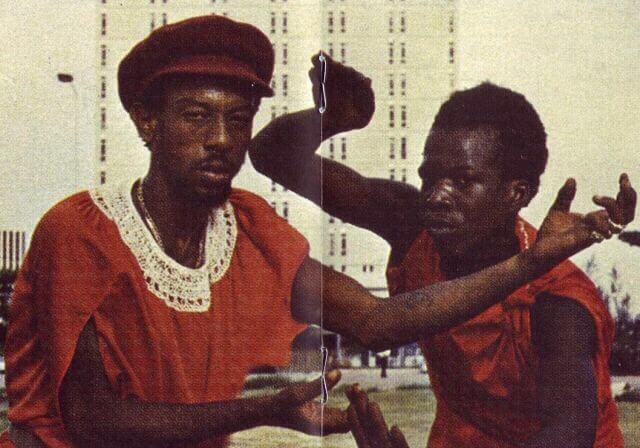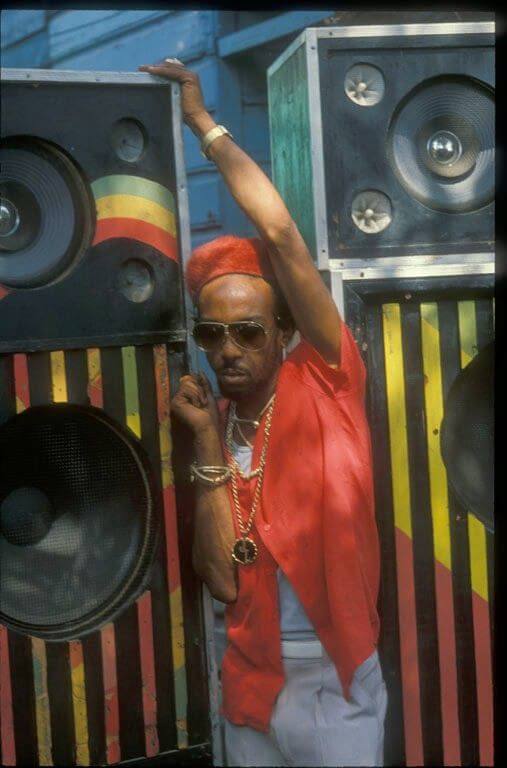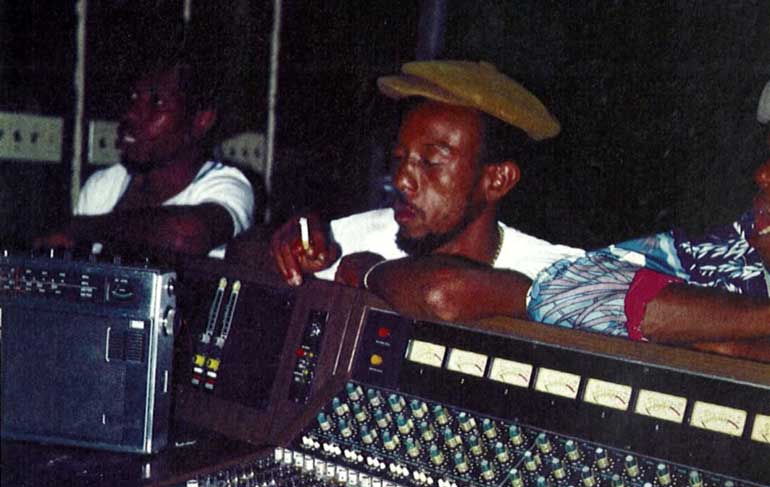Henry “Junjo” Lawes was one of the most important and influential dancehall reggae producers during the 1980s.
He was born in West Kingston, Jamaica, around 1960. He started singing with the Grooving Locks trio but found his success when he moved into production in 1978, initially as an assistant for singer and producer Linval Thompson and his album I Love Marijuana.
The following year, Lawes worked with Barrington Levy at Channel One studio, producing a series of hits and the debut album (Bounty Hunter) that propelled them both to stardom. Junjo immediately became one of the hottest new producers around. This was also possible thanks to the supporting cast with which he would work in the next few years, all icons of the dancehall scene: the Roots Radics, or the instrumental backing band known for their rugged rhythm; and Hopeton “Scientist” Brown, one of the notable dub mixers of the dancehall era.

Henry “Junjo” Lawes opened his own label, Volcano, and started producing smash hits for Yellowman, who became the most popular DJ of the early ’80s. Lawes worked successfully with several other DJ style reggae artists, such as Nicodemus, Ranking Toyan, Josey Wales, Eek-a-Mouse, Michigan & Smiley, Charlie Chaplin and Clint Eastwood. He also helped launch the careers of Michael Prophet, Cocoa Tea and – one of his most popular protégés – Frankie Paul. Lawes discovered Billy Boyo in 1981, when he was just 12 years old, turning him into the teenage star of pre-digital dancehall. Last but not least, Lawes revived the popularity of veterans such as John Holt, the Wailing Souls, Don Carlos, Hugh Mundell, Junior Murvin, and Johnny Osbourne, allowing them to make use of his fresh dance hall rhythms.
Junjo defined dancehall in its predigital phase with his raw, street-level sound and use of pre-existing rhythms virtually. In 1985, he relocated to New York City but ran into problems with the law due to drug issues and spent several years in jail. By the time he was released from prison and returned to Jamaica in 1991, the sound of dancehall had been radically altered by the rise of all-electronic production (ragga).

Still, Junjo worked again with familiar artists like Cocoa Tea, Josey Wales and Yellowman; and with new artists like Ninjaman and Shaka Shamba. He did not achieve any major success like in the early part of his career, and moved to London, UK, toward the end of the 1990s. There, sadly, he was shot to death in June 1999, in a case that remains unsolved, although likely related to the escalating violence between drug dealers at the time.
In addition to his work in producing many of the top DJs of the early ’80s and in helping more traditional reggae singers bridge their influences and the new style, Lawes is also remembered for his flamboyance. His custom-made suits, hats and flashy cars set the tone for fashion trends that remain a big part of dancehall music. Importantly, Lawes established a formidable link with the British independent label, Greensleeves Records, which became a massive source of Jamaican dancehall for sound systems and record stores, especially in London.
Sources:
Steve Huey on allmusic.com
David Katz on theguardian.com
Howard Campbell on jamaicaobserver.com

